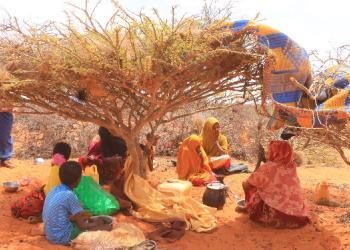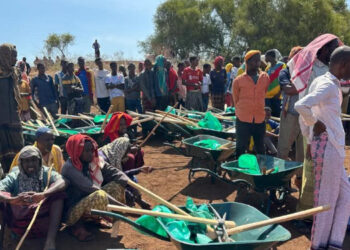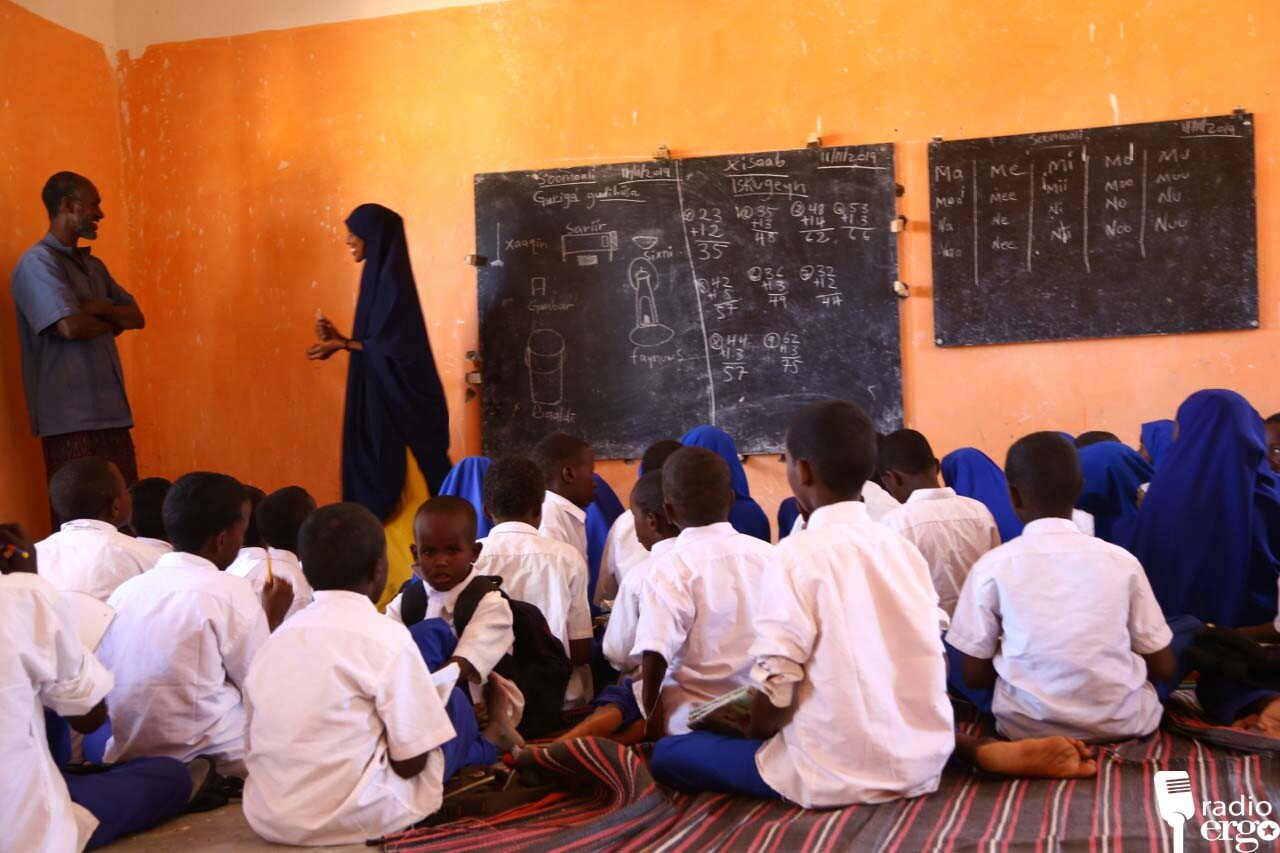(ERGO) – Displaced women in Baidoa have resorted to begging for food and income from local farmers after a critical aid programme was halted in May. Many of these women are the sole providers for their families, and are now depending on the generosity of farmers currently harvesting their crops.
Salado Nur Ishaq, a mother of six, says she visits several farms each day, hoping to secure enough food for a single meal. Still there are nights when they go to sleep without eating.
“I go to the Arab farms [area known in Baidoa]. I go to three farms and whatever I get from them, whether its two, three, or four dollars, I use for my daily living. My family’s life is in a crisis. I have nothing; I only cook what I get from begging at the farms. We used to cook three times a day, but now we only cook once,” she said.
Salado, 41, started begging in June after seeing other women in a similar situation. Sometimes she sells some vegetables she receives from the farms for a just couple of dollars. The International Organisation for Migration (IOM) used to provide her with $90 cash aid a month.
She can’t afford to take her sick son to a hospital and can only watch him suffer. Having separated from her husband in 2023, she brought the children to Baidoa from Barbare in Bay region in 2024, where their two-hectare farm was beset by drought and conflict.
Farhiyo Mohamed Ali, a mother of five, said she is also depending on food and vegetables given to them by farmers. She sells the produce in Dugan-dug market for a small amount of money that buys a single meal. On some days, she returns home empty-handed. Water is also a challenge.
“A jerrycan costs 5,000 shillings, and you have to travel a long distance and we have no money,” she said. “We need four or five jerrycans of water a day, ban only get one jerrycan. Sometimes I get money from the farms and go to pay for a jerrycan, but if I don’t have money nobody gives us anything.,” she said.
Farhiyo, 31, said her life was much better before they were displaced from their three-hectare farm in Deynuney, which was affected by a lack of rain. She was forced to flee to the camps, but hasn’t been able to find another livelihood.
Her husband left her three years ago after he could no longer provide for the family, leaving her without support.
She owes $70 for food she took on credit for her children over the past four months and the businessman she owes is constantly looking for her. Farhiyo said she used to collect firewood from 10 kilometres away to make two dollars for three days of work a week, but she stopped due to the increasing insecurity and robbers on the road.
A local farmer, Abdi Barre Mohamed, who owns a 10-hectare farm on the outskirts of Baidoa, said he and other farmers received desperate displaced people at their farms on a daily basis. He said they gave them what they could and the displaced women helped them with the farm work.
“They come to our farms and tell us about their problems. We give them some sacks of food. They also help us when we are tilling the land and with the harvesting and watering of the crops. Since they help us so much, we give them whatever we have,” he said.
Abdi said most of the people who came to his farm were women, either alone or in groups. He said farmers in the Bay region were currently in the harvesting season, which had brough many impoverished people flocking to the farms.











